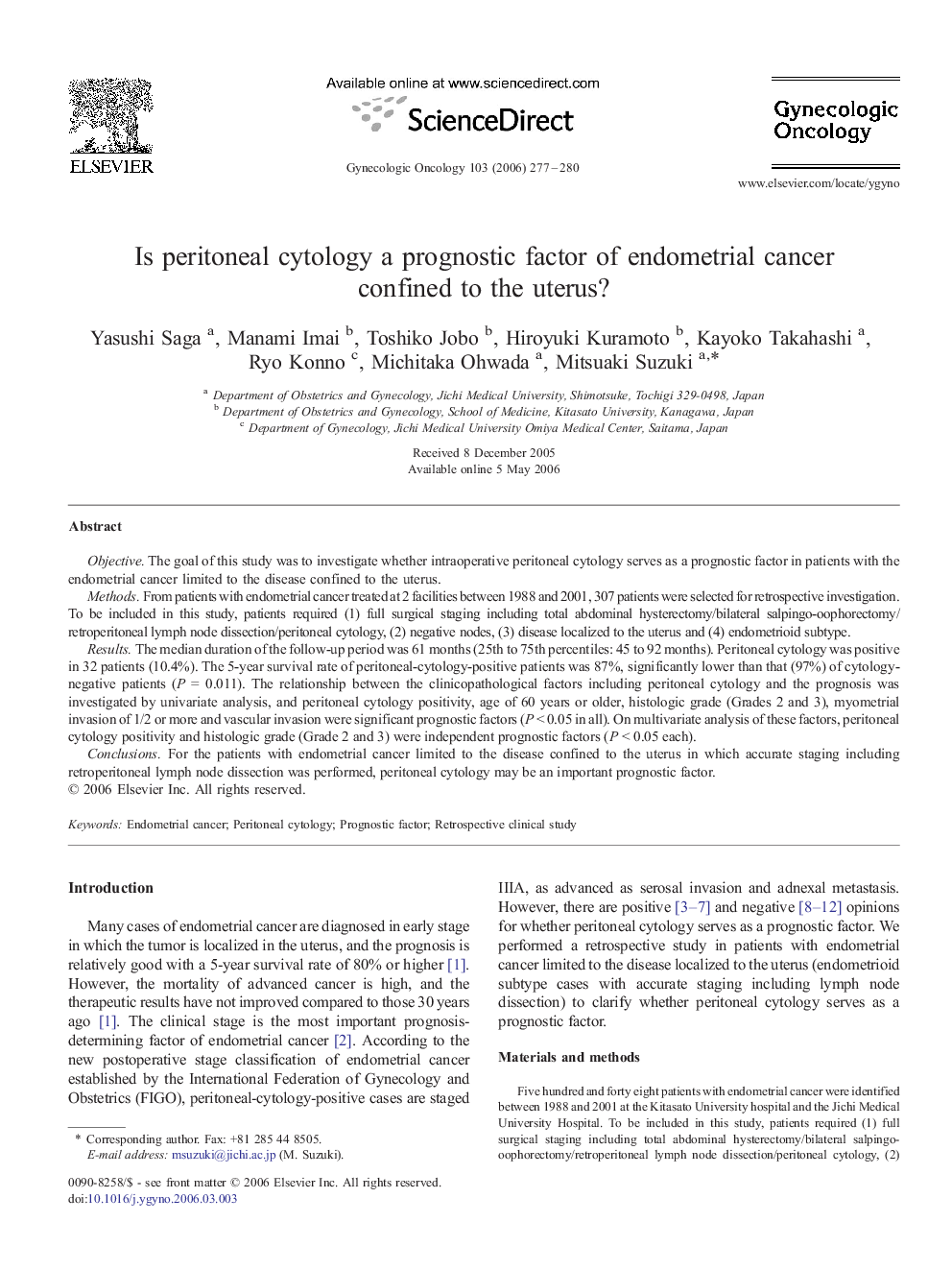| Article ID | Journal | Published Year | Pages | File Type |
|---|---|---|---|---|
| 3946612 | Gynecologic Oncology | 2006 | 4 Pages |
Objective.The goal of this study was to investigate whether intraoperative peritoneal cytology serves as a prognostic factor in patients with the endometrial cancer limited to the disease confined to the uterus.Methods.From patients with endometrial cancer treated at 2 facilities between 1988 and 2001, 307 patients were selected for retrospective investigation. To be included in this study, patients required (1) full surgical staging including total abdominal hysterectomy/bilateral salpingo-oophorectomy/retroperitoneal lymph node dissection/peritoneal cytology, (2) negative nodes, (3) disease localized to the uterus and (4) endometrioid subtype.Results.The median duration of the follow-up period was 61 months (25th to 75th percentiles: 45 to 92 months). Peritoneal cytology was positive in 32 patients (10.4%). The 5-year survival rate of peritoneal-cytology-positive patients was 87%, significantly lower than that (97%) of cytology-negative patients (P = 0.011). The relationship between the clinicopathological factors including peritoneal cytology and the prognosis was investigated by univariate analysis, and peritoneal cytology positivity, age of 60 years or older, histologic grade (Grades 2 and 3), myometrial invasion of 1/2 or more and vascular invasion were significant prognostic factors (P < 0.05 in all). On multivariate analysis of these factors, peritoneal cytology positivity and histologic grade (Grade 2 and 3) were independent prognostic factors (P < 0.05 each).Conclusions.For the patients with endometrial cancer limited to the disease confined to the uterus in which accurate staging including retroperitoneal lymph node dissection was performed, peritoneal cytology may be an important prognostic factor.
